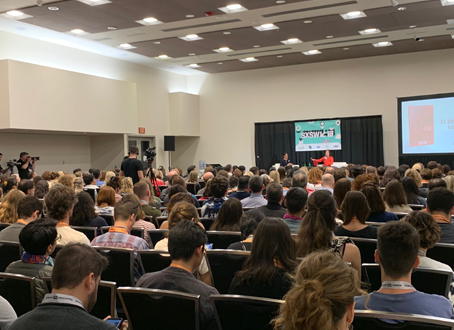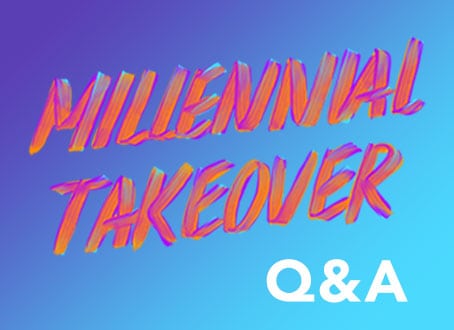We are excited to announce with our partners, at Achieve, the release of Phase 2 of the 2017 Millennial Impact Report. With 3,000 respondents, this survey and research analysis constitutes one of the most robust data sets on Millennial interest in social issues and engagement with causes to date.
It’s hard to believe this is the Case Foundation’s 9th year of research on the Millennial generation, dating back to the Social Citizens report in 2008. Through interviews with over 100,000 Millennials, we have learned a lot about what motivates and how best to influence the Millennial generation of changemakers. But our work shows there is always something new to learn as the Millennial generation ages and our economic, political and social environments evolve.
In 2016, the Millennial Impact Report analyzed how Millennial cause engagement was effected by that year’s presidential election cycle. In 2017, we turned our attention to studying how the post-election environment influenced Millennial activism and cause engagement. Here are our top five key findings from the 2017 research:
1. Only 29 percent of Millennials believe the country is going in the right direction
Now that we are post-election, we’re curious about the Millennial perspective on our current social and political climate, and it turns out their current outlook isn’t positive. In fact, 71 percent of Millennial respondents don’t believe the country is going in the right direction or aren’t sure, and only a little more than a quarter of Millennial respondents (27 percent) are satisfied with the president.
2. Millennials believe that voting matters
While respondents expressed frustration with the current direction of the country, they haven’t lost their interest in making an impact. For years, nonprofits and organizers have worked to encourage younger voters to use their voice to influence change. Those efforts might be sinking in: 65 percent of Millennial respondents in the Millennial Impact Report stated they voted in the 2016 presidential election, compared to 55 percent of the general population (according to the Pew Research Center). When probed a bit further on the value they place on voting, the report finds:
- 66 percent believe voting will lead to the change they want to see;
- 71 percent said voting is a form of activism; and
- A full 77 percent stated that voting is the duty of every citizen.
3. Millennials are taking more direct, less muted action
It might be said that for the Millennial generation, 2016 was the “calm before the storm” for cause engagement. The Millennials in this survey are energized and ready to create change. They reported taking more than 13,000 individual actions for causes and social issues. Earlier this year we identified the Millennial generation as Everyday Changemakers as they’re fully integrating social issue engagement in multiple facets of their lives. This trend toward fully embracing causes has continued with greater clarity and intentionality in 2017, with respondents stating they’ve taken both more traditional activist behaviors and less traditional cause engagement behaviors to actively make a positive impact on the social issues that matter to them. Furthermore, the report surfaced a small cohort (21 percent) who identify as activists – a group that is rising as the most highly-engaged, active and willing to act on behalf of others.
4. Millennials’ top-interest social issues have changed post-election
With this report, we took a deeper look at the social issues driving Millennials to take action and how issue interests may have changed following the 2016 Millennial Impact Report. In 2017, the top three issues for Millennials are civil rights/discrimination, employment (job creation) and healthcare reform. These interests have changed post-election; in 2016, the list was education, healthcare and the economy. It is also interesting to find that, depending on race and where they reside, Millennials prioritization of social issues varies.
5. Millennial engagement can power movements
For organizations seeking to tap the power of Millennial activism, this report provides a blue print to understanding the social issues that Millennials care about, the actions they’re taking, how they identify as changemakers and the ways in which they believe they can have the most impact. This generation stands out as coalition builders who can power movements because of their natural comfort with multi-sector approaches like:
- Using their voice in government as voters and through outreach to their representatives;
- Expressing their preferences to patronize ethical brands;
- Acting on their willingness to use social media to further a cause they care about; and,
- Making donations of time and money to organizations they support.
At the Case Foundation, we recognize the importance of cross-sector collaboration to catalyze movements that can generate long-term systemic change. It is vital that we as a field recognize the inherent strengths of the Millennial generation as an asset to the philanthropic and social good sector in building a coalition of dedicated changemakers.
Download the Report
Keep up with the Case Foundation’s Millennial Engagement work. To stay up to date on this ongoing research and check out the full body of Millennial Impact Research visit themillennialimpact.com.
Share your voice online using #MillennialImpact.




